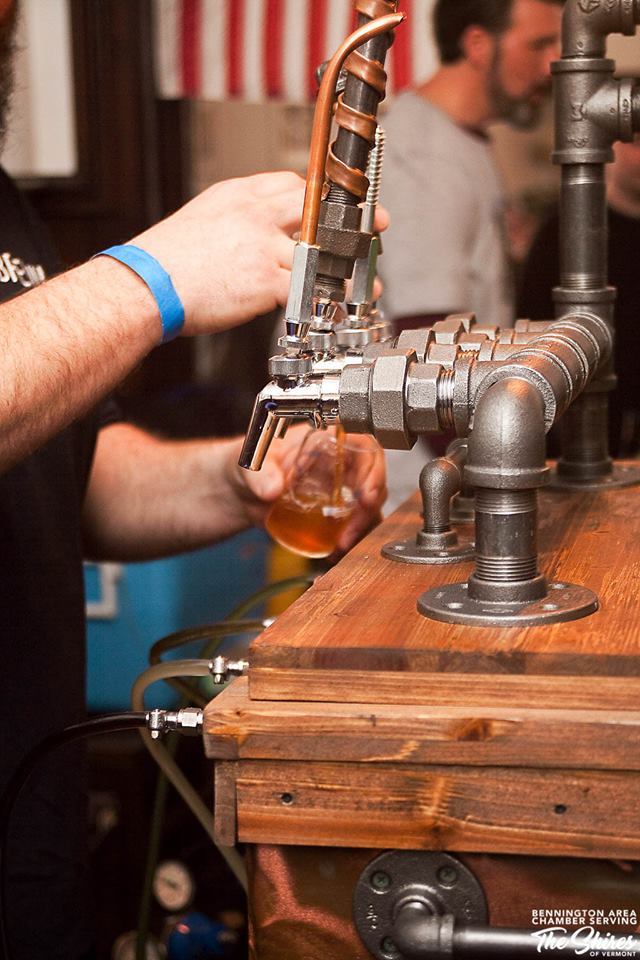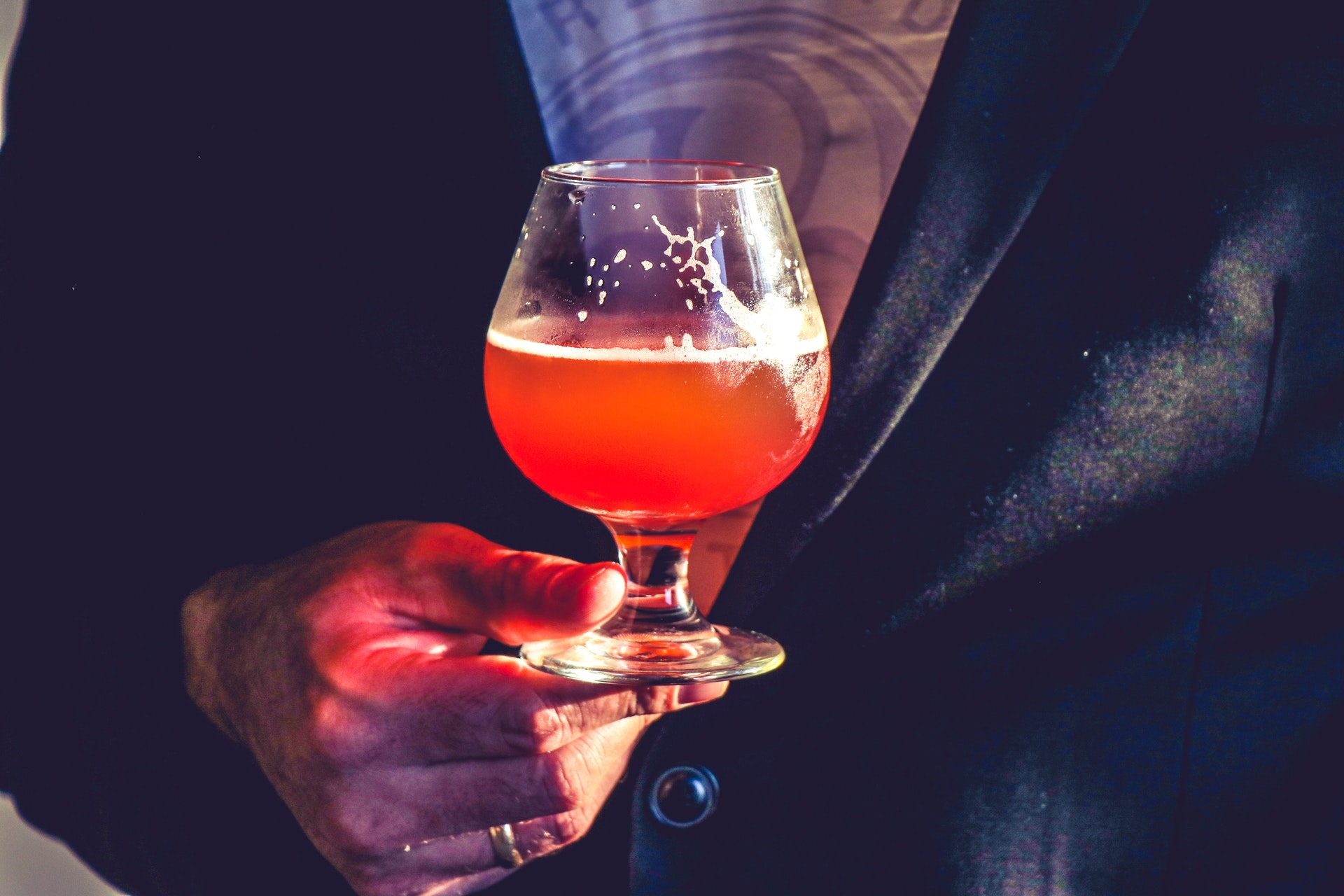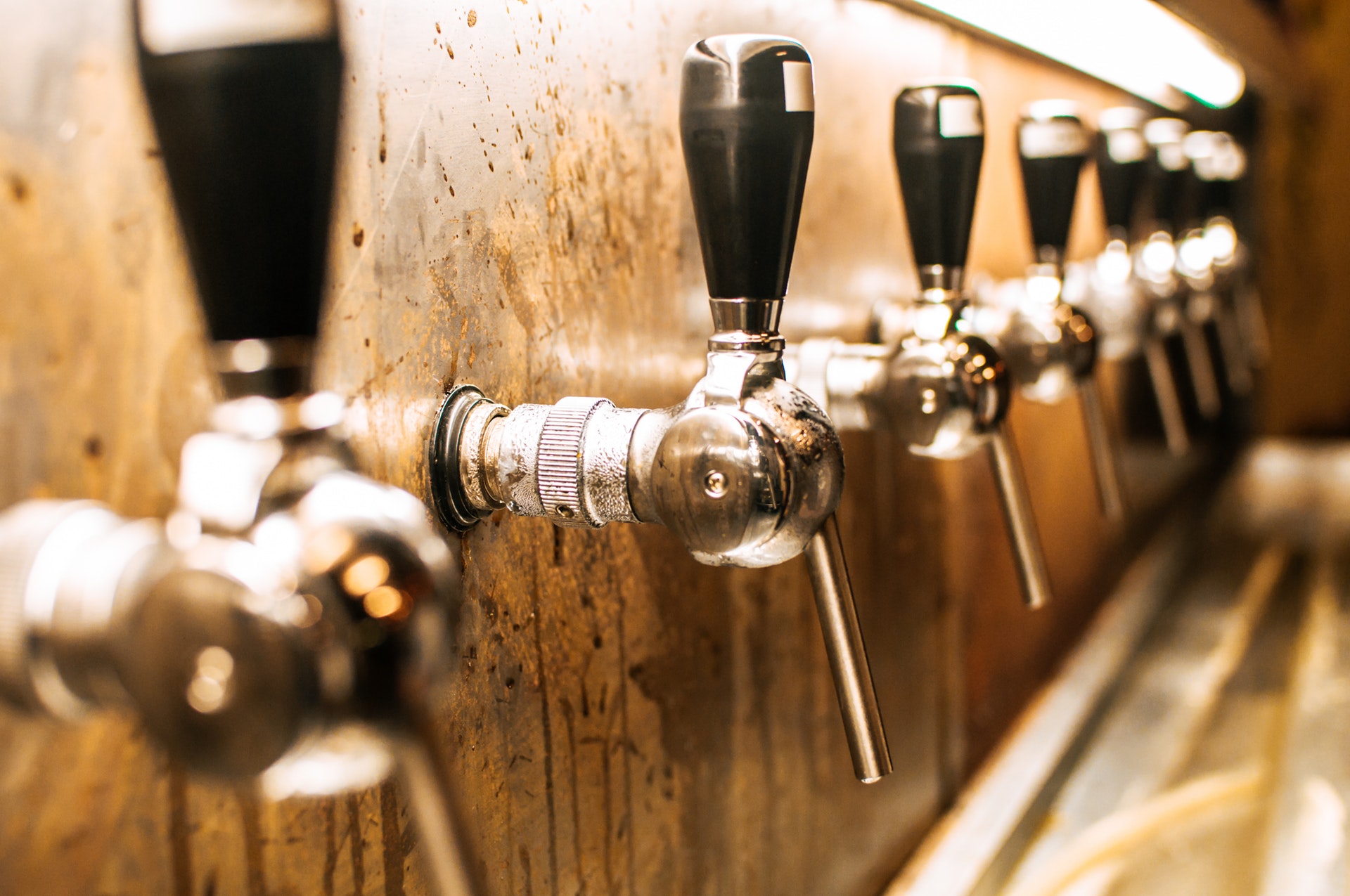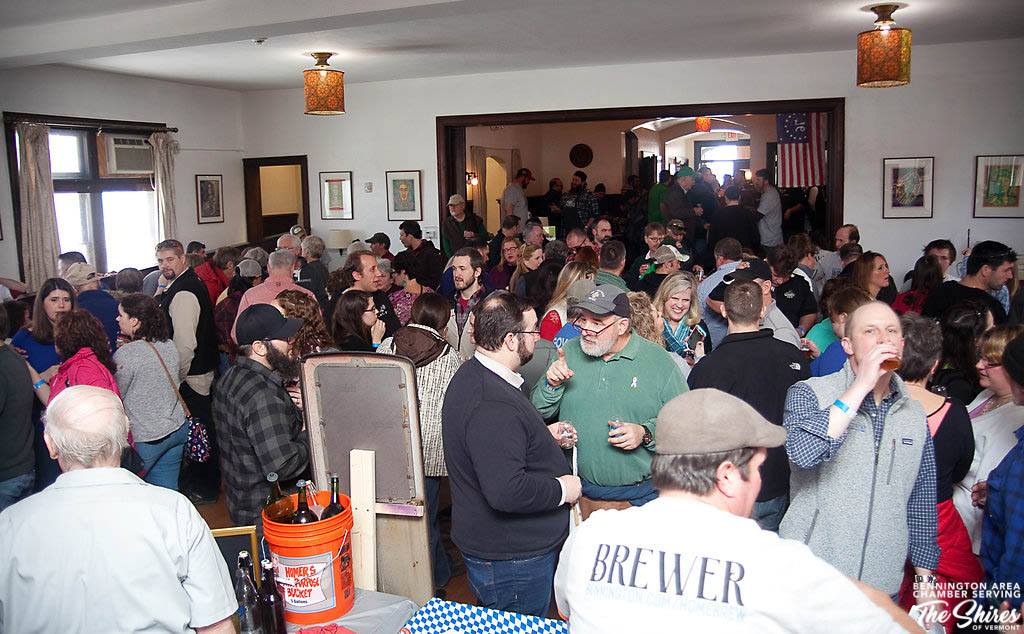UNTAPPED: SHIRES BREWING INDUSTRY POISED FOR GROWTH
By Cherise Madigan in partnership The Shires of Vermont Chamber
Opportunity is brewing in Vermont’s beer industry, and the Bennington area stands to benefit big — that is, if local entrepreneurs take advantage of that opportunity.
While the brewing industry has thus far struggled to catch on in the Shires, Will Gardner — founder of Hop Ridge Farms and Head Brewer at Madison’s Brewing Company — thinks that beer could play a large role in Bennington’s future.
“I think the strength of this region is that it’s really untapped,” he said. “There’s a lot of opportunity to define what the Southern Vermont beer scene is going to be about.”
That scene is not to be underestimated, Gardner asserts. According to a recent New York Times article, the more than 5,000 craft breweries in the United States contributed approximately $68 billion to the national economy in 2016. Over the last year, the industry is estimated to have grown at least five percent.
In Vermont craft beer outpaced both the maple syrup and ski resort industries in 2016, bringing $376.7 million into the state. More than 1.6 million people set foot in Vermont breweries that year, and 1.2 million of them were visitors to the state according to the Vermont Brewers Association (VBA).
“Just this fall we’ve added five new members,” said VBA Marketing Manager Amy Cronin. “It’s certainly exploded in recent years. We have 56 members that are part of the association, and more that are in planning or about to open.”
Of those 56 VBA brewers, however, only two make their home in the Shires: Madison Brewing Co. and Northshire Brewery. Bennington also boasts Harvest Brewing, a nano-brewery located on South Street, and The Crooked Ram brings a variety of bottled beers and “crowlers” to Manchester from regional producers. Just over the New York border, Brown’s Brewing attracts both hometown explorers and tourists with unique brews and fun events.
“There’s not a lot of players right now,” Gardner admitted, adding that Bennington’s proximity to metropolitan areas like Albany, New York City, and Boston would lead one to believe otherwise. “Logistically it makes sense to have more action here in Southern Vermont, considering where we are geographically, but it just hasn’t happened. I’m not 100 percent sure why.”
“There’s not a lot of us down here, but that means that there’s a lot of possibility,” said Karen Mayne of Northshire Brewery, which is orchestrating a move to Manchester in the near future. “We started about eight years ago, and have just continued to grow.”
Madison’s has experienced growth in recent years as well, with long-term plans to launch a production brewery in Bennington according to Gardner. This year the establishment’s new “421 Taproom” will open across Main Street featuring 24 beers on tap, approximately 8 wines, and 6 ciders. Five of those beers will be Madison’s own, Gardner says, and the rest will rotate between products from regional breweries.
But what will it take for more entrepreneurs to discover the growth that Bennington’s first wave of brewers has enjoyed? According to Gardner, a mix of political support and economic incentives may be just the answer. Having found success in cultivating hops over the New York border, he explained that policy can help to create the right atmosphere for the brewing industry to thrive.
“In New York state they have this really cool thing called the Farm Brewery law, which was created to let people get into the brewing game without the ridiculous cost of licenses,” he said. “The caveat is that you have to use a certain percentage of New York state grown ingredients, like barley and hops.”
A similar policy could be particularly effective in Vermont, Gardner noted, as the state is already endowed with a rich agricultural landscape. Though the brewer worked with State Representative Bill Botzow of Pownal to achieve that, he says that the legislation has languished in the house thus far.
Federally, however, craft breweries across the nation found an unexpected benefit in the recent tax code rewrite — which targets small breweries in its effort to lower the tax rate on domestically produced beer.
“With the exception of larger breweries like Long Trail and Magic Hat I think that all [VBA] brewers will benefit,” Cronin said. “It’s essentially a tax break based on the barrels of beer produced each year.”
“It cuts our barrelage tax in half, which helps us to grow,” Gardner explained. “It helps tremendously.”
If the Vermont government were to introduce similar incentives and subsidies, he added, the industry could begin to play an even larger role in drawing visitors — and residents — to the state.
“We really need someone on a higher level who wants to make this place more attractive to beer entrepreneurs,” Gardner said. “Beer is driving tourism.”
According to Cronin the VBA’s “Brewery Challenge,” which allows participants to make a game of checking off breweries they’ve visited, has made “beercations” even more attractive to potential visitors. If more brewers choose Bennington county as their home, says Gardner, similar brew tours could catch on in Southern Vermont.
“I want there to be four or five breweries in Bennington; small businesses churning out awesome beer,” he said. “To just start developing that camaraderie and culture would be really cool.”
“Having breweries is a big draw for tourists,” added Mayne. “The benefit is that we’re so close to Massachusetts and New York, but we also get a lot of visitors from other parts of the state.”
While a vibrant commercial brewing industry has yet to arise, Gardner insists that the Shires does boast a bustling homebrewing culture. That culture will be showcased this Saturday, he said, at the annual Wings and Winter Homebrew Festival sponsored by the Bennington Area Chamber of Commerce.
“What’s really cool for this year’s event is that we have close to 30 homebrewers, and 15 of them are new to me,” Gardner said, adding that each brewer typically brings multiple styles of beer. “We have eight restaurants participating with the wings, some from the Northshire, some from the Southshire, and one actually from Albany. Some brewers are coming all the way from Connecticut.”
At the festival locals and visitors alike can sample a variety of beer, wine, and cider Gardner said, while also immersing themselves in the local brewing culture.
“At a lot of commercial beer festivals you’re talking to the person pouring the beer,” he explained. “Here, you’re speaking with the person who brewed it.”
The camaraderie that forms between fellow brewers is palpable, Gardner says, and he hopes that more will open their doors in the Shires in coming years.
“We want more breweries in town; we want to encourage growth,” he said. “I came from a homebrewing background, and now I’m here, so I definitely want to support that.”
“It’s a business just like anything else; it’s not going to be just like home brewing,” Mayne cautions. “But as long as you love making really good, high quality beer you’ll be successful.”
While there is competition between brewers, Gardner adds, there is also a refreshing friendliness underlining the industry.
“We’re always helping each other out,” he said. “It’s not very competitive personally, which is a very unique thing if you’ve been in any other business.”
“It’s really a community of brewers who know each other and develop good relationships,” Cronin added. “It’s competitive, but not in the way you think of.”
As time goes on, Gardner hopes that his industry — and Madison’s in particular — can play a leading role in Bennington’s future.
“Bennington is already known as this historic destination, and I think that adding beer to that could provide a huge economic boon to this area,” he said. “I would love to see this Main Street filled with businesses, and I think that one way to do that is through beer.”





